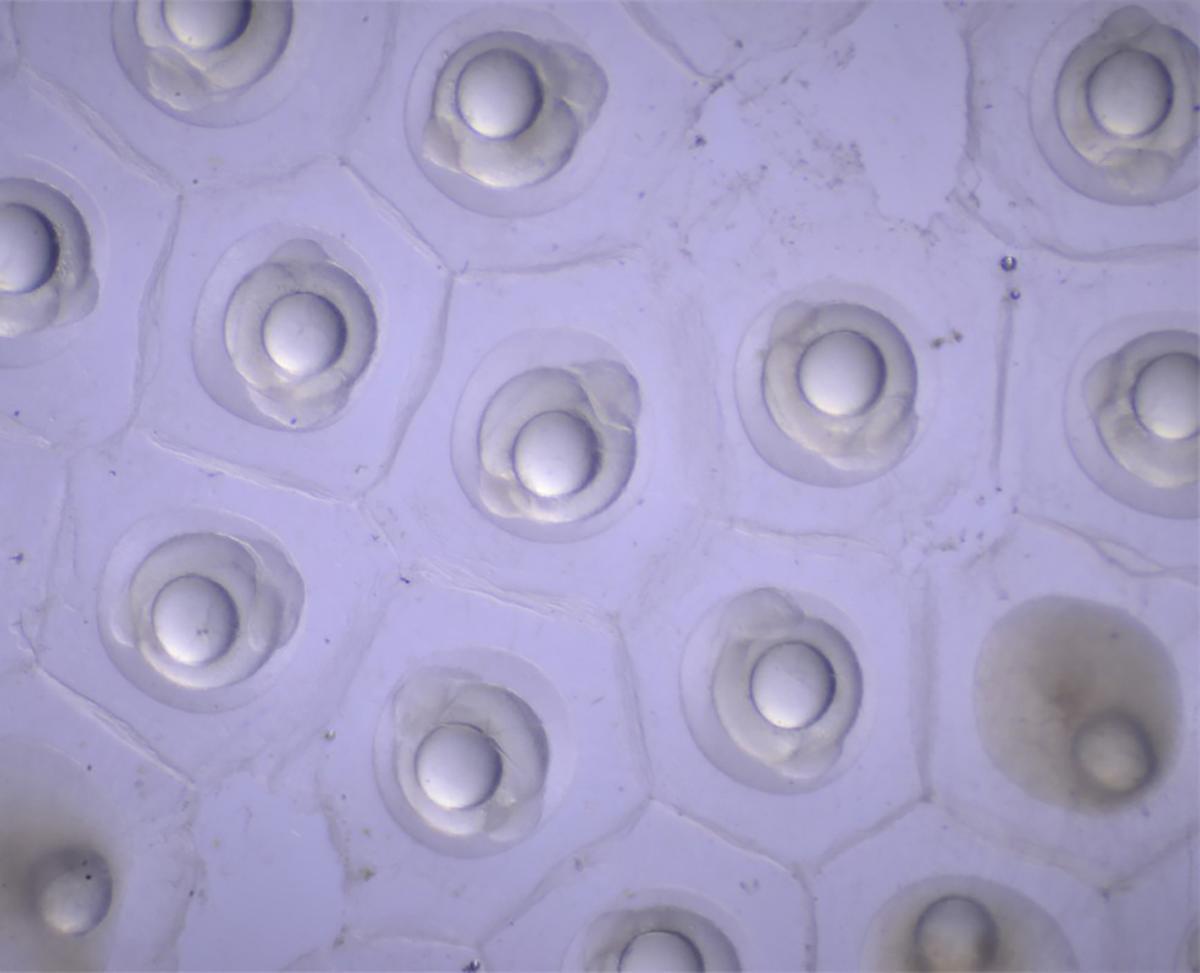
Yellow Perch embryos. Image credit: Kieran Smith/MNSG.
Project description
This project seeks to identify a safe and effective treatment for external parasites and fungal growth on aquaculture-raised Yellow Perch (YEP). The widespread use of the disinfectant formalin in commercial aquaculture aims to control external parasites and fungal growth on fish embryos.
YEP, a commercially important species, spawns thousands of eggs in a gelatinous matrix. In the wild, the sticky matrix helps anchor the eggs to aquatic vegetation in the shallows of a lake or large river. In aquaculture, where the eggs don't need to be attached to anything, the sticky mass is a problem. If one or more embryos are infected, it's impossible for a producer to remove individual infected embryos. The result can be that the entire mass of eggs are vulnerable to fungal outbreaks during incubation.
Reliance on formalin in YEP aquaculture poses environmental concerns, especially in flow-through systems where it can reduce dissolved oxygen levels and kill plankton the fish will eventually feed on. In recirculating aquaculture systems (RAS), formalin treatments inhibit nitrifying bacteria, which are critical for maintaining proper water quality. This project’s proposed solution involves removing YEP embryos from incubation tanks and putting them in separate containers for static (15 minute) formalin treatments. The goal is to control fungal growth on YEP embryos in a sustainable manner. The separate-tank treatments would reduce the amount of formalin used and released into the environment in flow-through systems.
Funding
Project team
Principal Investigator:
Kieran Smith, Aquaculture Extension Associate, University of Minnesota Sea Grant College Program.
Co- Investigators:
Amy Schrank, Extension Program Leader, Fisheries and Aquaculture Extension Educator, University of Minnesota Sea Grant College Program.
Don Schreiner, Fisheries Specialist, University of Minnesota Sea Grant College Program.
Lead scientist(s)
Kieran Smith
Aquaculture Extension Associate
Minnesota Sea Grant College Program
University of Minnesota Duluth